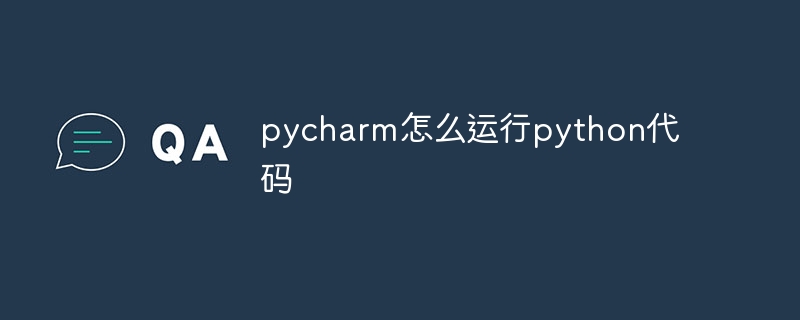Steps to use PyCharm to run Python code: Create a Python project. Create a script or program. Click the "Run" button or press the shortcut key to run the script. Use the debugger to run the code in debug mode. Other run options include: run configurations, terminal, and unit tests.

How to use PyCharm to run Python code
Step 1: Create a Python project
- Open PyCharm IDE.
- Click "File" > "New Project".
- Select the Python interpreter and specify the project name.
- Click "Create".
Step 2: Create a Script or Program
- In the Project Browser, right-click the project folder and select New > "Python files".
- Enter a name for your code.
- Paste the code into the file.
Step 3: Run the script
- Place the cursor anywhere in the code.
- Click the Run button in the menu bar or press a hotkey (Ctrl Shift F10 on Windows/Linux, Cmd Shift F10 on Mac).
- PyCharm will run your code and display the output.
Step 4: Use the debugger
- Run the code in debug mode, allowing you to step through execution and inspect variables.
- Add breakpoints to your code.
- Click the Debug button in the menu bar or press the hotkey (Ctrl Shift D on Windows/Linux, Cmd Shift D on Mac).
- PyCharm will pause code execution at the breakpoint you specify.
Step 5: Additional run options
-
Run configuration:You can create a custom run configuration, specifying different Interpreter, parameters and working directory.
-
Terminal: You can use the built-in terminal to run command line programs in the project directory.
-
Unit testing: PyCharm integrates a unit test runner that allows you to test your code and generate test reports.
The above is the detailed content of How to run python code with pycharm. For more information, please follow other related articles on the PHP Chinese website!






